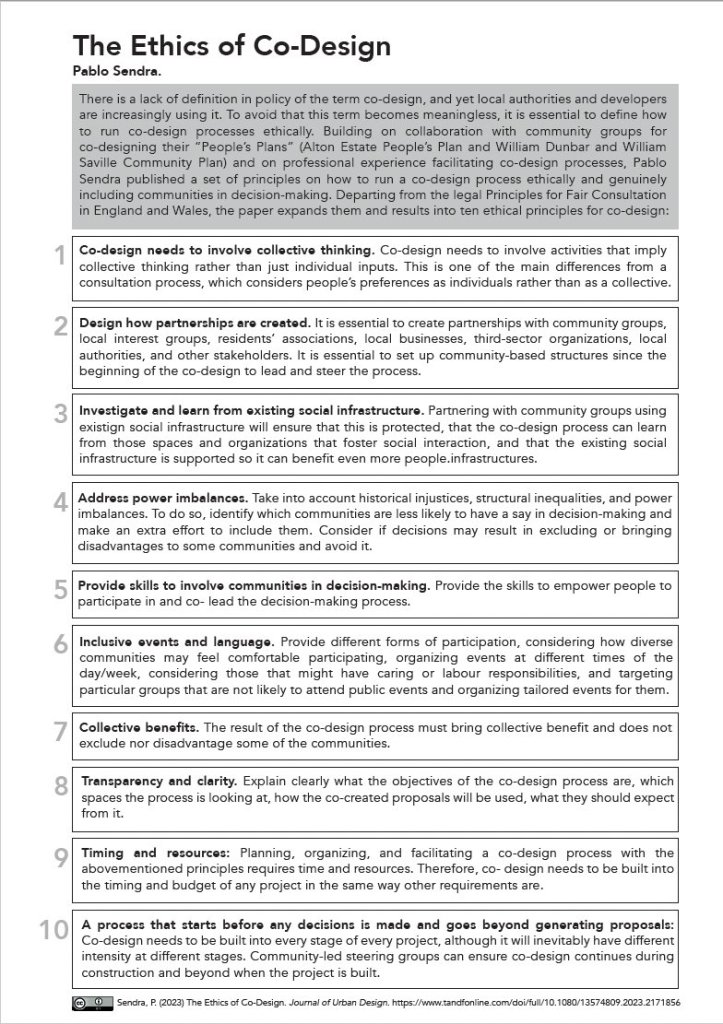14 July 2023: there is news from City Hall which is important for Just Space members.
Draft guidance on ‘Affordable’ housing and on Viability Assessment: consultations close on 24th July.
The Mayor produced two new London Plan Guidance (LPG) documents in draft and seeks comments before they are finalised. These documents cannot, by law, change the policies which are embedded in the London Plan but they can and do elaborate them and toughen them up through the details of implementation.
The London Tenants Federation (LTF) has submitted their very careful and detailed commentary on both LPGs and has kindly agreed that we can share it with other members of Just Space who may be preparing their own submissions, or who may want to write to the GLA supporting the LTF.
The LTF makes a refreshed and powerful case for focusing planning policy as much as possible on maximising the production of social housing at council rents and not the other, more expensive, forms of so-called “affordable” housing. It refers back to the latest GLA study of London’s housing needs in 2017 which showed how overwhelming was the need even then for secure, low rent, housing which only social/council housing can provide and it points to the extremely low levels of actual production which have been achieved since then, suggesting many ways in which more could be done.
The response welcomes some of the GLA proposals to tighten up loopholes which enable developers to avoid or minimise their obligations and pushes for a bolder insistence on delivery of at least 50% ‘affordable’ housing on land previously in public ownership.
The Viability analysis LPG is all about the details of a rotten system which the LTF and Just Space have always criticised – establishing developer profitability as the dominant criterion governing what gets built and for whom. But for the moment the provision of most social housing depends on private developers and housing associations being forced to provide it as a condition for getting planning permission. The rules and procedures for testing what developers can afford are the subject of this LPG and the Tenants Federation is very shrewdly pointing out further ways in which developers’ manipulation of the figures could be limited and the whole process be made more transparent.
The LTF response to the two LPGs is here and will also be on their own site LondonTenants.org
The GLA’s draft LPGs are at Affordable Housing and at Viability along with means to comment.
Remember: 24 July is the closing date for comments.
Planning For London programme
Just Space and many community groups consider that the last London Plan was a bad plan and it’s is now very old. Drafted in 2016, it would have been adopted in 2020 (though it was pushed into 2021 by the Secretary of State) and has in many ways become even more irrelevant to London’s real needs as a result of the pandemic, the fresh round of austerity, now a recession and the accelerating reality of climate and biological breakdown.
We argued that the City Hall planners could and should have got down to some urgent work to get a new plan under way but the Mayor apparently decided that no start should be made until after the next mayoral election in May 2024. So instead City Hall has devised this Planning for London programme in which they are gathering the views of citizens and organisations while declaring that this is not part of making the next plan.
They have just held the first two events at which they met with citizens and organisations (we are called “stakeholders’) and they promise to publishe what that have gleaned from listening to the many round-table discussions they orchestrated. They are also going to publish their learnings from an earlier series of focus-group-type (‘deliberative’) events to which they invited a statistically representative selection of Londoners. The whole programme is set out on the City Hall web site here. There will be a stage where they invite our inputs on how they should do impact analysis. That’s a process which they made a serious mess of last time and had to try to make good in the middle of the public Examination so it is very important that we all help.
Just Space told its member organisations about these two recent public events so quite a few of us took part and we are gradually comparing notes about what happened. We’ll post our summary here. Meanwhile one of our members wrote a personal blog post here which you might want to look at.
If you have comments or observations or took part in these events and want to offer your reactions, please get in touch or use the comments below.




 FROM GATHERING TO CONFERENCE
FROM GATHERING TO CONFERENCE The national Community Planning Alliance have an article about the Community Health Impact Assessment peer-to-peer learning programme, starting in the new year.
The national Community Planning Alliance have an article about the Community Health Impact Assessment peer-to-peer learning programme, starting in the new year.  Where’s Richard Lee? Gone to Fairville… Just Space is partner to a European research project called Fairville. A project of Horizon Europe, the EU’s key funding programme for research and innovation, Fairville includes 8 cities: Brussels, Marseille, Berlin, London, Calarasi (Romania), West Attica region (Greece), Giza (Egypt), Dakar (Senegal). A Fairville Lab in each city will gather community knowledge, pilot different participatory methods, co-produce local policies and plans and create a sustainable network of local communities.
Where’s Richard Lee? Gone to Fairville… Just Space is partner to a European research project called Fairville. A project of Horizon Europe, the EU’s key funding programme for research and innovation, Fairville includes 8 cities: Brussels, Marseille, Berlin, London, Calarasi (Romania), West Attica region (Greece), Giza (Egypt), Dakar (Senegal). A Fairville Lab in each city will gather community knowledge, pilot different participatory methods, co-produce local policies and plans and create a sustainable network of local communities. 